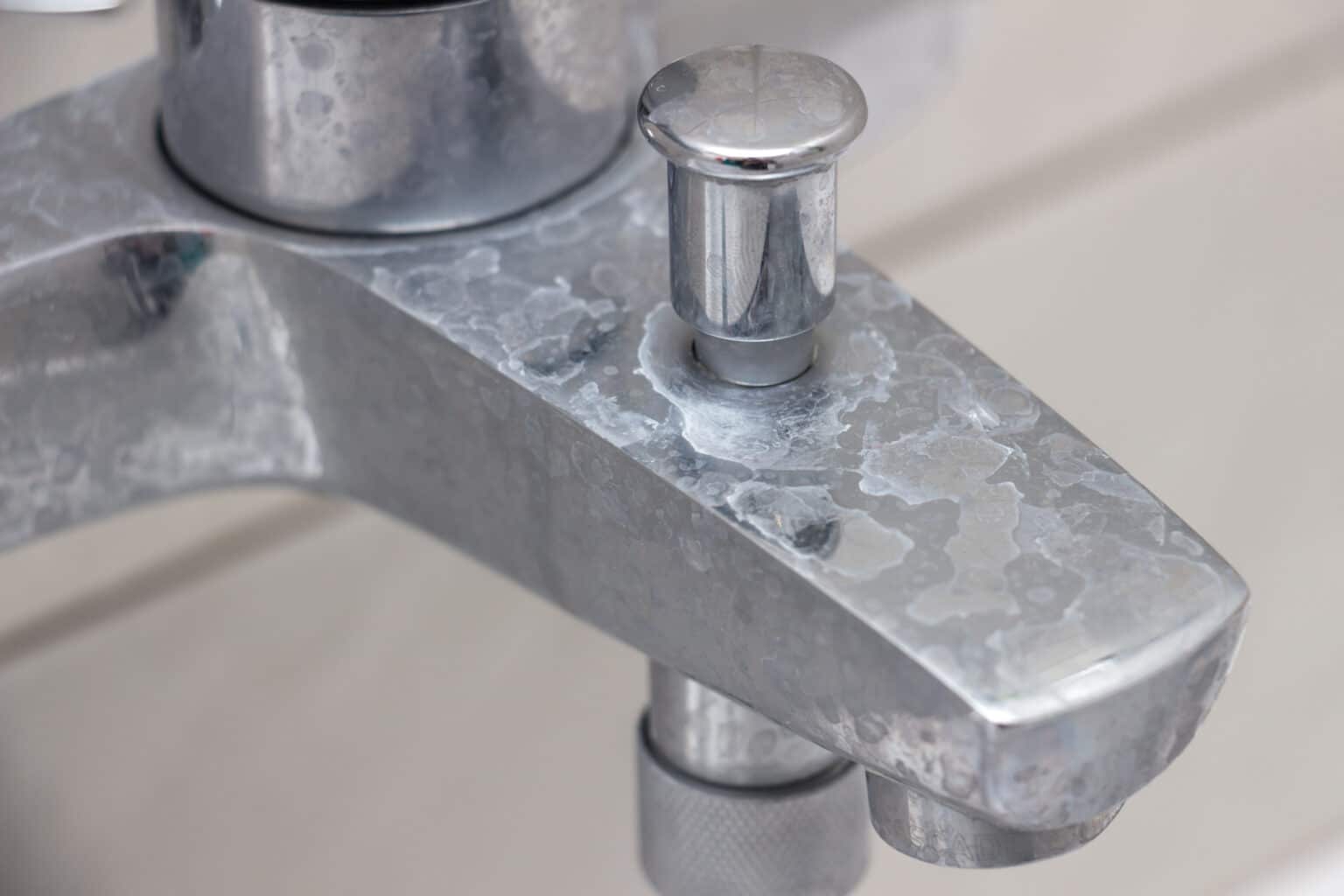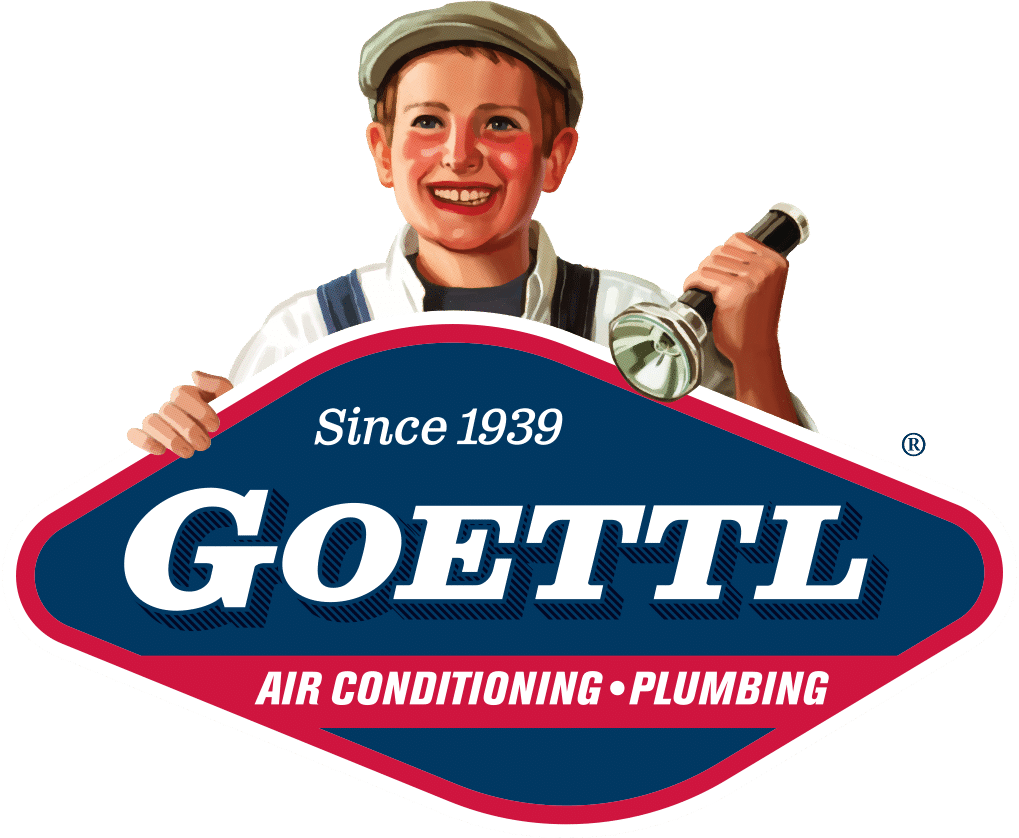
Understanding Total Dissolved Solids (TDS) in Your Home’s Water Supply
We’ve all heard of “hard water.” Most homeowners consider it a mild annoyance. But your home’s water hardness can make a huge difference, from the taste of your tap water to the longevity of your plumbing system and appliances. That’s why it’s so important to understand the level of Total Dissolved Solids (TDS) in your home’s water system.
As part of every plumbing visit, our Goettl technicians measure your water’s total dissolved solids level to gain a better picture of your plumbing’s overall health. Understanding the problems associated with hard water, what TDS levels are, how and why we test for them, and what average and ideal TDS levels are for your household.
What are Total Dissolved Solids (TDS)?
Total dissolved solids (TDS) is the measure of how many minerals, metals, and salts are present in your household’s tap water. In other words, it’s a measure of how “hard” your water is. The higher the concentration of TDS, the harder your water is.
As water moves through soil and rock, it can pick up certain minerals, salts, and metals along the way. Naturally occurring minerals like calcium and magnesium are easily dissolved by flowing water. Other sources like agricultural run-off, industrial or petrochemical pollutants, or salt used to de-ice roads are also absorbed into the water as it passes.
All these particulates are carried through into the groundwater supply, which is then drawn from to provide tap water for households. When enough of these minerals are dissolved into your water supply, leading to a high concentration of TDS, you’ll start to notice that you have “hard water” due to certain problems that will arise.
Hard Water Problems
Even without measuring the total dissolved solid levels in your household water supply, there are certain signs that will tell you if you have hard water. Some signs that you have hard water include:
While these are all annoying issues to deal with, hard water problems don’t stop at extra clean up and extra moisturizing.

High TDS levels can also cause significant issues with your pipes and home appliances that can shorten the lifespan of both and lead to serious plumbing issues. High TDS levels cause mineral build up and corrosion, which over time can:
In other words, any household appliance that uses water, such as your dishwasher, washing machine, or water heater, will need repair or replacement sooner in a house with a high concentration of total dissolved solids.
The same goes for your household plumbing system, including your sewer lines. This leads to more frequent plumbing repair calls, which can really add up in terms of time, hassle, and expense.
Ensuring water quality is an essential part of providing the best service for Goettl’s customers, which is why we always are a carry a Total Dissolved Solids meter, and measure TDS levels as part of any plumbing visit. Knowing the concentration of total dissolved solids in your household water gives Goettl’s technicians a better idea of what issues to look for on a plumbing call so that we can serve you better. We’ll also get some insight into what plumbing problems may arise on future calls and how to prevent them.
How TDS Levels Are Measured
Measuring the levels of total dissolved solids in your household tap water is done with a device known as a TDS meter.
A handheld TDS meter like the ones we use at Goettl on every plumbing call measures the electrical conductivity of your household tap water in order to determine the concentration of total dissolved solids.
Unlike pure water, which is a poor conductor, dissolved solids carry a certain electrical charge. Thus, a higher electrical charge in the tap water means a higher TDS level. Besides measuring your tap water’s TDS level as part of every plumbing call we go on, we also test your water’s purity to ensure there are no harmful contaminants in your drinking water that may affect your health.
What are Average TDS Levels?
The concentration of total dissolved solids in your tap water plays a crucial role in both your water’s taste, and its quality. The higher the concentration of TDS, the greater the water hardness issues mentioned previously.
The average TDS level in the United States’ drinking water supply is about 350 ppm (parts per million.) In general, the EPA recommends that you stay below 500 ppm in your tap water. However, a higher TDS level isn’t necessarily dangerous for your health. Las Vegas, for example, has a TDS level of 642 ppm.
Anything above 500 ppm will have an effect on the water’s taste, and will shorten the lifespan of your pipes and appliances.
If we find that you have higher-than-average TDS levels, we may recommend scheduling a routine plumbing maintenance visit. Our technicians will perform a thorough inspection to check the health of your plumbing, sewer, and appliances.
We’ll make sure that mineral buildup from hard water isn’t blocking your water lines or causing damage to delicate internal components in your water heater, dishwasher, or washing machine. If they are, we can clear those out so that your pipes and appliances don’t have to be repaired or replaced prematurely. We’re also happy to answer any questions you have. Ensuring water quality is an essential part of providing the best service for Goettl’s customers. That’s why we incorporate TDS measurements and water purity test kits on every plumbing call.
How to Solve Hard Water Problems
If your household tap water has high TDS levels, the best way to lower them is to install a Reverse Osmosis system. A reverse osmosis system is one of the most effective water filtration systems. It significantly reduces your TDS levels by using pressure to filter minerals, salts, and other contaminants out of your tap water through a micron filter. This leaves only pure water flowing through your household pipes and faucets.
A reverse osmosis system installed in your house can lower your TDS levels to under 50 ppm, and sometimes even as low as 20 ppm. That means cleaner glassware, better tasting tap water, and increased longevity and functionality for your household pipes and appliances. If you’re considering installing a reverse osmosis system for your home, call Goettl for a free consultation. We offer upfront, flexible pricing and a 100% satisfaction guarantee on all our work.
Whether you need help with a household plumbing issue, routine plumbing maintenance on your pipes and fixtures, or 24/7 emergency plumbing repair, we’re always a phone call away. When it comes to your household plumbing, don’t settle. Call Goettl.








































































































































































































